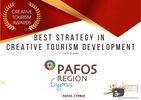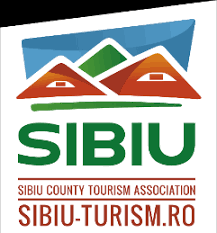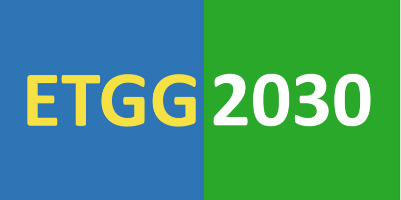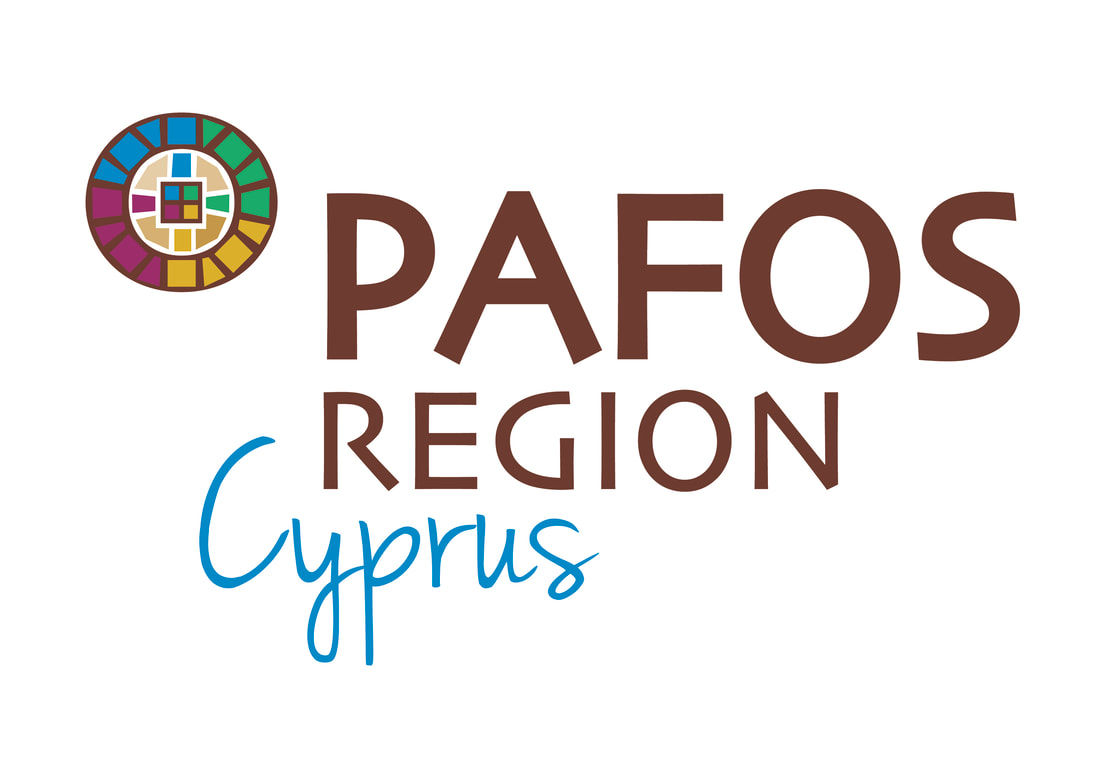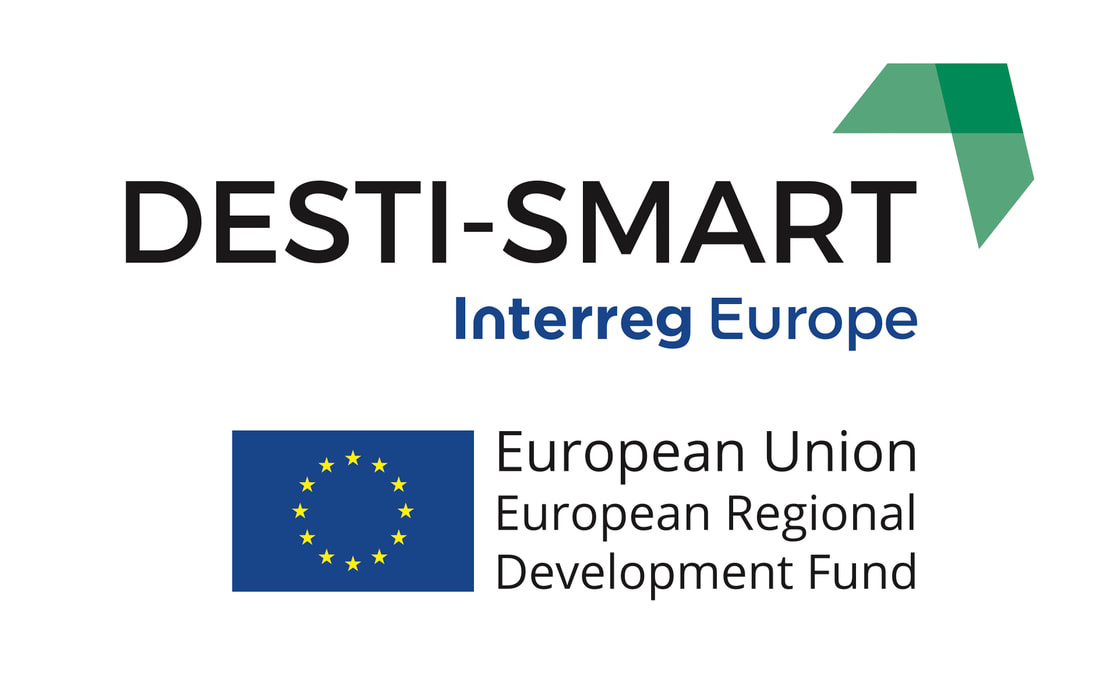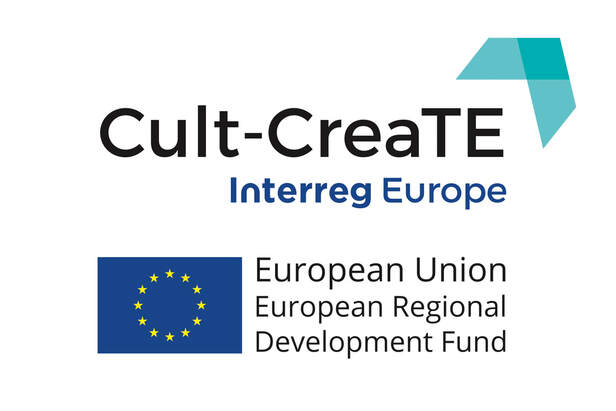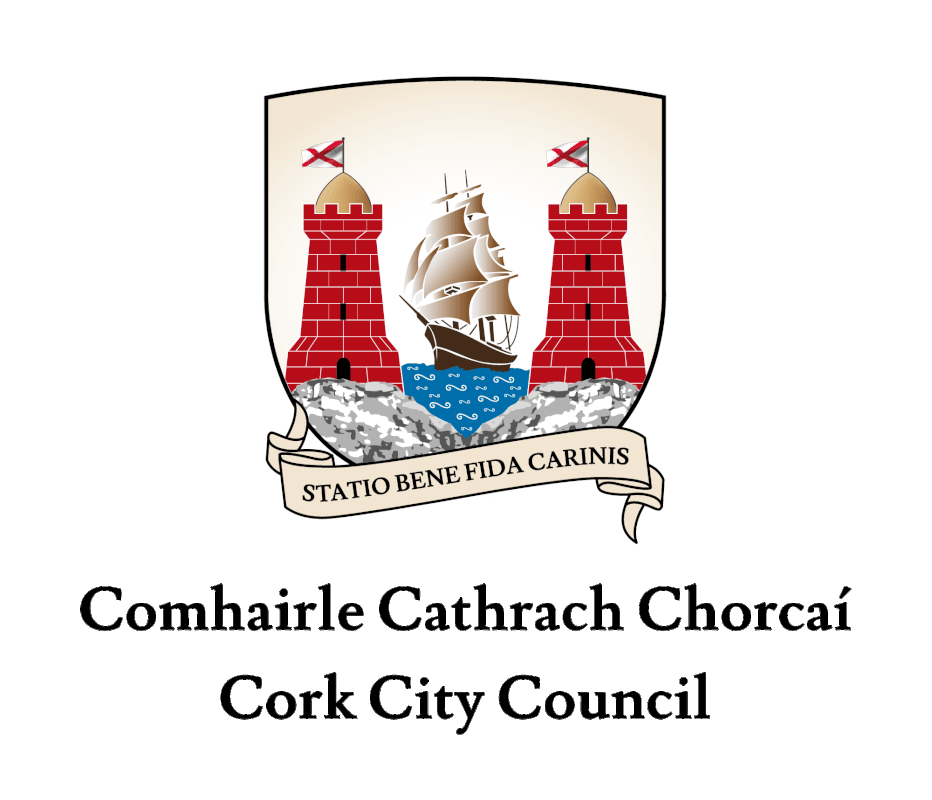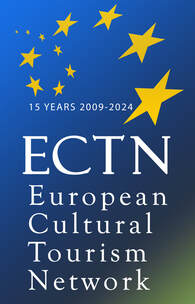|
Pafos region, Creative destination AWARD
Pafos has won another European award! The Pafos Regional Board of Tourism has been awarded, ‘Best Strategy in Creative Tourism Development 2020’, by the Creative Tourism Network. The international network based in Barcelona, within the framework of the annual international awards for 2020, announced Paphos as the Best Strategy in Creative Tourism Development. Pafos was among dozens of other prestigious destinations and was distinguished as Best Strategy in Creative Tourism Development 2020. This means that Pafos is the best destination (for 2020) in terms of the strategy it follows to offer visitors the opportunity for creative experiences with their active participation in experiences related to local community, tradition and culture. According to the announcement, in the proposal submitted, special reference was made to the Old Town of Pafos (Pafos centre) which is in the process of being transformed into a central point that offers various experiences that the visitor can participate in and be creative. This includes traditional professions, such as, arts and crafts, wine, gastronomy and traditions, cultural and other events, and there in much room for further development and improvement. In recent years, various studies have shown that visitors no longer want to be considered a “tourist” but want to feel involved in the daily life of the locals and experience the destination. Today, visitors are no longer content with just a traditional sightseeing tour. Instead, they are seeking to participate in the experience. This is the new way of discovering a foreign culture and destination in general and it’s growing every year. The Creative Tourism website (CTN) notes that creative tourism is considered a new generation of tourism that involves the tourists and locals in the creation of the tourist product (co-creation). |
|
ECTN member 'Sibiu County Touris Association', Romania, a partner in a new COSME project:
European Tourism Going Green (ETGG 2030) – Supporting SME Sustainability through Certification The European Tourism Going Green (ETGG 2030) project will bring direct support to European tourism SMEs who are looking to become more sustainable. ETGG 2030 has been funded almost 1 million Euros for 30 months from January 2021 by the EU COSME programme to bring together sustainability experts, higher education institutions, business support organisations, chambers of commerce, tourism organisations and NGOs to establish an ICT-based cluster approach for the development and transfer of innovative best practice in the sustainable management of small, medium & micro tourism enterprises (SMEs). Covid-19 Resilience Strategies – Supporting Tourism SMEs and European Destinations Before Covid-19 sustainability was all about climate change, social inequality and environmental degradation, with long term solutions and future-centred international goals. Now the pandemic has led us to focus immediately on human health and economic survival on a personal to global scale. Short term crisis management is one thing, but in the face of multiple crises we need to have a more considered response to long term stability whilst implementing the immediate support measures. Longer term goals must not be abandoned, but instead be reformulated to ensure the achievement of the circular green economy envisaged in the EU implementation of the UN’s 2030 Agenda. The ETGG 2030 SME Support Services The implementation of the European Tourism Going Green 2030 SME sustainability services will be piloted in an exemplary manner in 9 destinations in 6 countries with UNESCO cultural heritage sites and Natura 2000 sites as an immediate attempt to make the tourism eco-system and its territorial base more resilient in European areas that are most under threat. Expert knowledge support from the Erasmus-funded TRIANGLE (Tourism Research Innovation and Next Generation Learning Experience) Knowledge Alliance will be given to 6 business support organisations and chambers of commerce who will run national competitions to select 70 SMEs for sustainability support worth up to 10,000 Euros. A common European SME sustainability online training system will be developed and implemented to give the businesses access to both an expert knowledge base and a European group of sustainability experts who will assist them through a third-party sustainability certification process. From Research to Market Place – Creating market access for certified SMEs. By using the training system and tools such as an ‘R U ready for Certification?’ App and achieving 3rd party certification, the SMEs will be able to make evidence-based business decisions to implement sustainability in their operations and supply chains to improve their socio-economic and environmental performance, and simultaneously be measured in the process of becoming more sustainable. This will allow them to raise their market profile by qualifying for a listing on the world's largest independent quality-assessed sustainable & responsible tourism market-place - the Green Travel Maps on the Tourism2030.eu Portal - where they can establish b2b, b2c and b2g links by being included in an upgraded Travel Green Europe App. If you would like to see how your business or destination can be involved, please visit the project web page at https://destinet.eu/who-who/civil-society-ngos/etgg2030. Partners List:
National ETGG2030 Partner: Asociatia Judeteana de Turism Sibiu / Sibiu County Tourism Association [email protected] |

The European Association of Via Francigena ways joins ECTN
The Via Francigena is a "Cultural Route of the Council of Europe" according to the definition of the Enlarged Partial Agreement (EPA) on Cultural Routes approved by the Committee of Ministers of the Council of Europe on 8 December 2010. Via Facigena was amongst the winners of the ECTN Awards 'Destination of Sustainable Cultural Tourism 2019', in the category 'Transnational Thematic Tourism Products'.
The European Association of Via Francigena ways (EAVF) is a voluntary association of Regions and Local Authorities of Italy, Switzerland, France, England, which currently accounts 178 members. It was established on 7 April 2001 in Fidenza (Emilia-Romagna, Italy) to promote the Via Francigena - 1800 kilometres from Canterbury to Rome, through 13 European Regions (Kent; Hauts-de-France; Grand Est; Bourgogne-Franche-Comté; Vaud; Valais; Valle d'Aosta; Piedmont; Lombardy; Emilia-Romagna; Liguria; Tuscany; Lazio), in addition to 4 Regions of southern Italy (Campania, Molise, Basilicata, Apulia) and the Via Francigena of the South in 4 countries (United Kingdom; France; Switzerland; Italy). It carries out activities to enhance and promote the route at all institutional levels: local, regional, national and european. In 2007 the Council of Europe declares EAVF carrier network ("réseau porteur") of the Via Francigena, assigning it the role of official reference point for safeguarding, protecting, promoting and developing the Via Francigena in Europe.
https://www.viefrancigene.org/en/
The Via Francigena is a "Cultural Route of the Council of Europe" according to the definition of the Enlarged Partial Agreement (EPA) on Cultural Routes approved by the Committee of Ministers of the Council of Europe on 8 December 2010. Via Facigena was amongst the winners of the ECTN Awards 'Destination of Sustainable Cultural Tourism 2019', in the category 'Transnational Thematic Tourism Products'.
The European Association of Via Francigena ways (EAVF) is a voluntary association of Regions and Local Authorities of Italy, Switzerland, France, England, which currently accounts 178 members. It was established on 7 April 2001 in Fidenza (Emilia-Romagna, Italy) to promote the Via Francigena - 1800 kilometres from Canterbury to Rome, through 13 European Regions (Kent; Hauts-de-France; Grand Est; Bourgogne-Franche-Comté; Vaud; Valais; Valle d'Aosta; Piedmont; Lombardy; Emilia-Romagna; Liguria; Tuscany; Lazio), in addition to 4 Regions of southern Italy (Campania, Molise, Basilicata, Apulia) and the Via Francigena of the South in 4 countries (United Kingdom; France; Switzerland; Italy). It carries out activities to enhance and promote the route at all institutional levels: local, regional, national and european. In 2007 the Council of Europe declares EAVF carrier network ("réseau porteur") of the Via Francigena, assigning it the role of official reference point for safeguarding, protecting, promoting and developing the Via Francigena in Europe.
https://www.viefrancigene.org/en/
|
ECTN members 'Experience Bremerhaven', Germany and 'Pafos Regional Board of Tourism', Cyprus, complete Action Plans for Sustainable Tourism Mobility in DESTI-SMART Interreg Europe project
DESTI-SMART Interreg Europe project is about Smart Mobility and Accessinility, towards Smart Destinations Mission Statement “The DESTI-SMART Interreg Europe project partnership aims to introduce sustainable and smart mobility solutions, low-carbon transport systems, intermodality improvements, cycling and walking facilities for visitors, with related innovations, at tourist destinations. These constitute important additions to the 'Smart Destinations' concept and definition, particularly by sustainable and smart tourism mobility as a further criterion and category of the 'European Capital of Smart Tourism' awards. The above are resulting from relevant interregional cooperation, exchange of experience, capacity building, policy development and policy change in sustainable tourism mobility, towards Smart Destinations” Project ApproachThe project approach is to seek and facilitate increased interaction, cooperation, innovations and integration between the tourism and transport sectors at destination regions, around priority key themes that are expected to contribute towards the transition to a low-carbon economy, through sustainable mobility and accessibility solutions. Project Themes A. Low-carbon transport systems introduction investigation, including internalisation and reduction of external costs of transport for tourism and travel with low-carbon solutions, E-Mobility options, promoting the use of railways for access to destinations where possible, redeployment of disused railways for sustainable tourism development and non-motorised transport. B. Provision of improved Intermodality facilities for visitors, multimodal connectivity improvements, interchange facilities between long distance travel and local transport systems, including multilingual travel information provision, integrated e-ticketing for tourism sites and public transport, CycloTourism interchanges with public transport, awareness raising, promotion of low-carbon modes of travel, ICT & mobile applications, Mobility as a Service (MaaS). C. Accessible Tourism: Accessibility for tourists with mobility problems (disabled, elderly, families, etc). D. Facilitating Cycling & Walking for Tourists, cycling routes provision, shared bikes, promotion of CycloTourism, integration of cycling in urban/regional tourism mobility strategies, promoting ‘Greenways’. Action Plans ECTN members 'Experience Bremerhaven Tourism, Marketing and Events Company Ltd.', Germany and 'Pafos Regional Board of Tourism', Cyprus, have completed their action plans for implementation during Phase 2 of the project (2021-2022). Bremerhaven actions area on low-carbon transport, climate, bike rental and bicycle for people in wheelchairs (accessible tourism). Pafos actions are on low-carbon transport system (ropeway/teleferic) investment preparation, visitor intermodality by coordination of transport operators, accessible tourism policy framework, cycling & walking for sustainable tourism mobility, towards Pafos Region becoming a 'smart destination'. These action plans are based on exchage of experience and transfer of good practices from other DESTI-SMART project partners, such as Madeira PT, Sardinia IT, Mallorca ES, Hastings UK, Lake Balaton HU, Thessaloniki EL and Latvian Greenways LV. ECTN member Bounemouth University is advisory partner to all destination partners. For more details please visit the project website: https://www.interregeurope.eu/desti-smart |
|
ECTN members Vidzeme Tourism Association - Latvia, Veneto Region - Italy, Cork City Council - Ireland, Pecs-Baranya Chamber of Commerce and Industry - Hungary and Nicosia Tourism Board - Cyprus, are partners in Interreg Europe Project on Cultural and Creative Industries (CCIs) contribution to Cultural and Creative Tourism development in Europe (Cult-CreaTE), for SMEs competitiveness
The potential of Cultural & Creative Industries (CCIs) in developing new Cultural & Creative Tourism (CCT) products and services for Growth & Jobs, is being advanced by the Cult-CreaTE project with policy change in 8 regions. Common challenges are:
The overall objective is to redeploy CCIs for the development and promotion of CCT strategies, with sustainability, innovations, capitalisation, policy learning, policy implementation and capacity building. Main outputs are action plans, with implementation and monitoring of improved policy instruments in 8 destination regions, communication and dissemination tools for policy learning and capacity building, contribution to EUpolicies and EU2020 targets. The beneficiaries are public authorities and their stakeholders. Videzeme Tourism Association (VTA), Latvia, is lead partner. ECTN is advisory partner. For more details please visit the project website: https://www.interregeurope.eu/cult-create/ Cult-CreaTE project deploys Cultural and Creative Industries (CCIs) for the development and promotion of Cultural and Creative Tourism (CCT) strategies, towards enhancing the Competitiveness of SMEs CCIs |

Veneto Region joins ECTN
Veneto Region, Italy, has joined ECTN as a member, following successful cooperation in ECTN projects CHARTS INTERREG IVC (2012-2014), CHRISTA Interreg Europe (2016-2020) and Cult-CreaTE Interreg Europe (2018-2022).
Veneto Region, Italy, has joined ECTN as a member, following successful cooperation in ECTN projects CHARTS INTERREG IVC (2012-2014), CHRISTA Interreg Europe (2016-2020) and Cult-CreaTE Interreg Europe (2018-2022).
|
Professional development courses for tourism & hospitality professionals
A series of half-day courses to help develop your business 10 March 2017 The Department of Tourism and Hospitality at Bournemouth University have developed a suite of professional development courses for the tourism and hospitality industry to support managers, supervisors and their teams in their operational and strategic thinking. They will bring you the tools and techniques to help grow your business. Delivered through interactive workshops and networking with leading academics, these courses will help you to develop contemporary knowledge of critical business aspects that influence profitability and performance. You can view the full workshop programme HERE. Join their professional courses and build your organisation and career. Book your course today. If you have any questions about studying at BU please don't hesitate to get in touch. |

